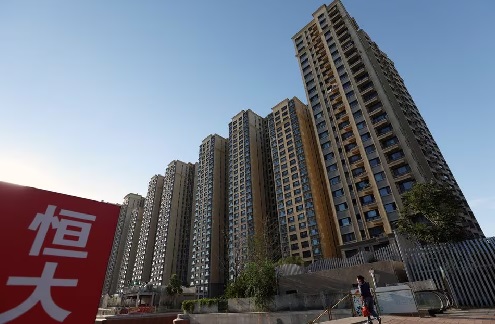
Evergrande, symbol of China’s property crisis, heads to liquidation
Evergrande Group, the world’s most indebted property developer, has been ordered to liquidate by a Hong Kong court, in a massive setback for China’s ailing real estate sector that could ripple through the world’s second largest economy.
Advertisement
The wind-up order, made by the city’s High Court on Monday, comes after the embattled Chinese real estate giant and its overseas creditors failed to reach an agreement on how to restructure the company’s massive debt.
The court said it will hold another hearing in the afternoon, which may lead to the appointment of a liquidator for Evergrande.
The beleaguered firm borrowed heavily and defaulted on its debt in 2021, sparking a massive property crisis in China’s economy, which continues to feel the effects. The Shenzhen-based developer, with total liabilities of 2.39 trillion yuan ($333 billion) at the end of June last year, had filed for bankruptcy in New York in 2023.
Court-appointed liquidators will manage the company and sell its assets to pay off its debt. After the process is completed, the company, previously China’s second biggest real estate firm, will cease to exist.
“Evergrande’s offshore liquidation was mostly expected, but it’s still a significant setback for an already troubled onshore real estate sector, one which will further decay investor sentiment,” said Brock Silvers, chief investment officer for Hong Kong-based Kaiyuan Capital.
Chinese stock markets have suffered astonishing losses in recent years. Since their recent peaks in February 2021, about $6 trillion — equivalent to roughly twice Britain’s annual economic output — has been wiped off the value of Chinese and Hong Kong stocks.
Apart from a record downturn in real estate, investors have been concerned about a myriad of economic problems facing China, including deflation, debt, a falling birthrate and shrinking work force, as well as Beijing’s shift towards ideology-driven policies that has rattled the private sector and scared away foreign firms.
Evergrande, the poster child for China’s property crisis, unveiled a multi-billion-dollar restructuring plan last March.
But that plan was derailed in September after Chinese authorities said the company’s founder and chairman Xu Jiayin was suspected of “crimes” and detained by the police.
Property sector woes
The spiralling property crisis has struck a hard blow to the Chinese economy.
For decades, China’s robust growth had been propelled by a housing boom fuelled by a growing population and rapid urbanisation. The industry accounted for as much as 30% of the country’s GDP, and more than two-thirds of Chinese household wealth is tied up in real estates.
But the sector fell into trouble after the government clamped down on excessive borrowing by developers in 2020 in an attempt to cool the property bubble. Since then, dozens of Chinese developers have defaulted on their debts.
The industry has since become a drag on the broader economy, which is grappling with a slow recovery from three years of pandemic lockdowns and a series of headwinds, from record high youth unemployment to mounting financial stress at local governments.
In December, new home prices fell by the highest amount in nearly nine years, and property investment slumped 9.6% in 2023 from the previous year, marking a second straight year of declines.




